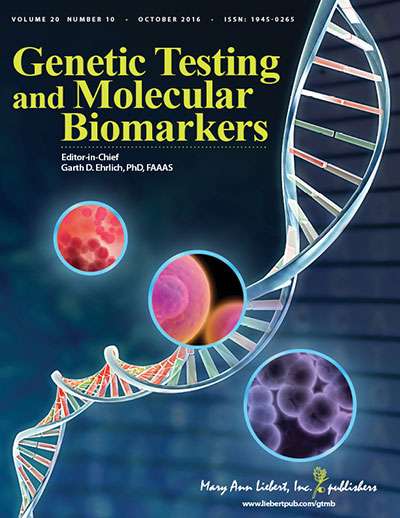New metabolomic screening method detects multiple inborn errors of metabolism in urine

Analysis of a single urine sample using a metabolomics-based screening approach can identify multiple different inborn errors of metabolism (IEMs), facilitating early disease detection and rapid initiation of treatment, as described in an article published in Genetic Testing and Molecular Biomarkers.
Adam Kennedy, Sarah Elsea, and coauthors from Metabolon, Inc. (Durham, NC) and Baylor College of Medicine (Houston, TX), present the automated IEM screening platform they have designed and implemented in the article entitled "Metabolomic Profiling of Human Urine as a Screen for Multiple Inborn Errors of Metabolism".
Biochemical signatures have been identified in urine for more than 30 IEMs, which have traditionally been detected in various different bodily fluids including blood and cerebrospinal fluid. This study demonstrates the potential to detect numerous IEMs in a single urine sample using one metabolomics-based assay performed on an automated screening platform.
"This is both transformative research and an economical and efficient way to provide precision medicine on a population-based scale," says Genetic Testing and Molecular Biomarkers Editor-in-Chief Garth D. Ehrlich, PhD, FAAAS, Center for Genomic Sciences and Center for Advanced Microbial Processing, Institute for Molecular Medicine and Infectious Disease, Drexel College of Medicine (Philadelphia, PA).
More information: Adam D. Kennedy et al, Metabolomic Profiling of Human Urine as a Screen for Multiple Inborn Errors of Metabolism, Genetic Testing and Molecular Biomarkers (2016). DOI: 10.1089/gtmb.2015.0291





















